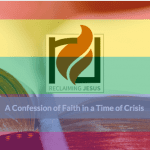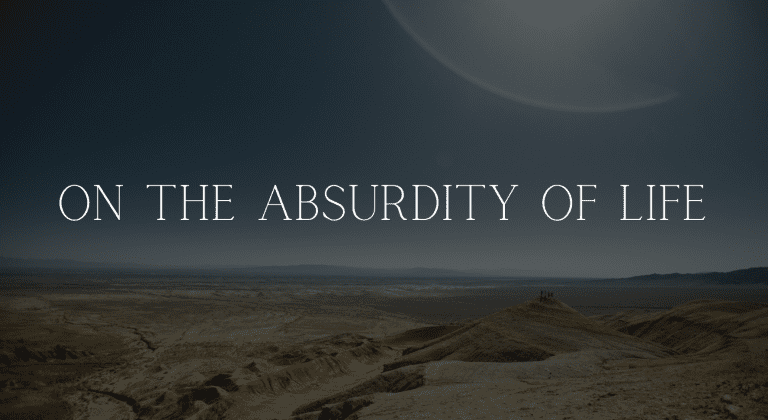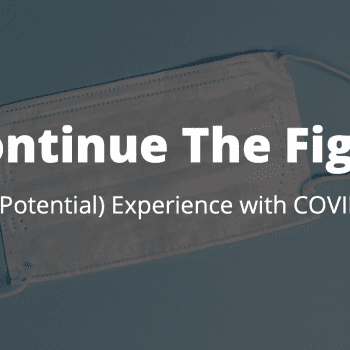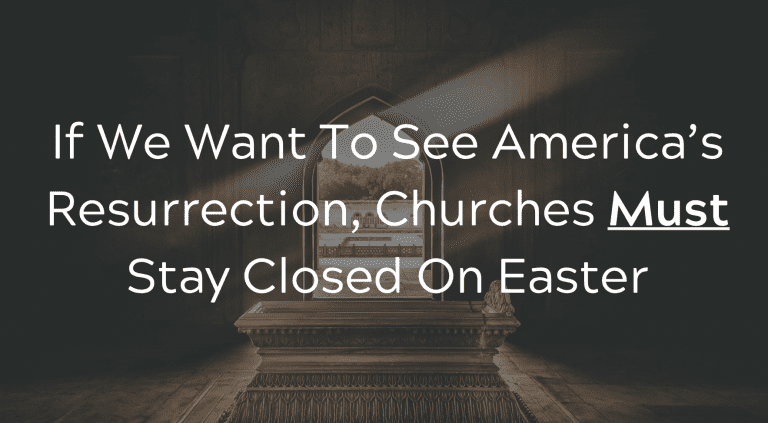“Truth—is as old as God—
His Twin identity
And will endure as long as He
A Co-Eternity—
And perish on the Day
Himself is borne away
From Mansion of the Universe
A lifeless Deity.”
Emily Dickinson
What are we talking about when we talk about “truth”?
On one hand, the answer to this question seems pretty obvious. On the other hand, especially in our current age, understanding exactly what we mean when we say “truth” is pretty elusive.
After all, we live in the era of “fake news”. The era where those who have the most power and privilege are often the most dis-honest and un-truthful. And we live in the shadow of an era of post-modernity where all concepts of truth have been thoroughly deconstructed and something new seems to be emerging in their place.
In my own journey of life, the churches that spoke the most about so-called “truth” were also the ones who use that very truth to beat me into conformity to their idea of what it was to be a man, to be a Christian, and to be a person.
I grew up in an independent, fundamentalist, Bible-believing, Baptist church- those were the literal words on our churches sign out front. In that context, truth was absolutely the highest “value”.
Faith was not about leaping into the darkness or stepping beyond a boundary with confidence that someone or something would be there to catch us, but rather was about being certain of that which could not readily be seen or experienced, and out of that certainty, to combat any idea that didn’t align with our construction of “the truth”.
Honestly, it was really nice to be in a place where, at twelve years old, I had all of the truth figured out. I had all of the answers to all of life’s questions and challenges. Or so I was told.
The truth in my world was purely propositional- it was the right answers to the hard questions. It was cognitiveand reasonable. Anyone could have the truth if they just believed in it and memorized it….or bought the book.
But as I got older, and as our world became more globalized and more inter-connected through the explosion of the internet and social media, many, if not most, of the so-called “truth” I received when I was in my Baptist church began to be called into question. My lived reality didn’t seem to align with what I was told to be objectively and eternally true.
And my understanding of God, who honestly had become nothing more than some grand, human in the sky who dictated all of those truths and expected us all to get A pluses on our truth exam, lest we be damned to the Lake of Fire began to fall apart, because of my experience of God moving in places that the “truth” said God couldn’t be or among people who flatly rejected the “truth”.
I also began to experience a great deal of fear from the people that I looked up to and learned the truth from because I began asking questions, reading books, and hanging with people who they thought had “abandoned the truth”.
When I saw that fear, I began to be very concerned- why would someone who had the absolutely and eternal truth be afraid of people asking questions or posing challenges to the truth? Truth should have nothing to be afraid of. At the end of the day, after all of the challenges and critiques, the truth, if it is indeed true, should remain standing unscathed, right?
After coming from an environment of “truth” like this, I began to resent anyone who talked about “truth” in an objective way. Truth, in my experience, was just a battering ram created by those in power to marginalized, oppress, and beat people into conformity. Why would I want anything to do with that?
I spent a good number of years spiraling into the wild world of extreme postmodernism and existentialism, where I basically said that the truth was either non-existent or unattainable, so screw it all, let’s eat, drink, and be merry for tomorrow we die.
But living in a world without a sense of truth or grounding also became a bit of a hellish existence for me. Because somewhere, deep within, I just know that there is something called “truth”.
There is some ground of being on which my life and all of reality sits upon. There is some logic, reason, or intelligence in the universe that seems to in some mysterious way be guiding or creating or experimenting or directing the affairs of the cosmos. And that force or being or intelligence seems to have established laws or principles that govern the affairs of our universe.
In other words, out of my extreme deconstruction and distaste for the truth as I experienced in in fundamentalist Christianity, I began to discover that, for me, living in the nihilistic, deconstructed, absurdist world where I believed that there was no truth was not right or sustainable either.
Instead, what emerged out of my deconstruction was this: That there is something called truth, but what we talk about truth is actually the same thing we talk about when we talk about God.
EXPLORING THE ETERNAL
On June 2, 2016, NASA released a Press Release to the international media outlets that read: HUBBLE FINDS THAT THE UNIVERSE IS EXPANDING FASTER THAN EXPECTED. The Press Release opened with the following statement:
“Astronomers using NASA’s Hubble Space Telescope have discovered that the universe is expanding 5 percent to 9 percent faster than expected.
“This surprising finding may be an important clue to understanding those mysterious parts of the universe that make up 95 percent of everything and don’t emit light, such as dark energy, dark matter and dark radiation,” said study leader and Nobel Laureate Adam Riess of the Space Telescope Science Institute and Johns Hopkins University, both in Baltimore, Maryland.”
There are two things I want to point out from this press release. First of all- NASA says, and I quote, that “95 percent of everything in the universe is mysterious.”
Did you hear that? That humans have only begun to grasp and understanding of maybe 5% of our universe, what it is, what composes it, how it works. I point this out to say that no matter what I say today, no matter what anyone says any time, we must proceed through our lives with humility.
The smartest astrophysicists and astronomers don’t know even 5% about how reality works, so it’s pretty safe to say that most of us in this room have very little understanding of…anything.
So, when we talk about truth, we need to talk and walk with humility.
Secondly, I want to point out the obvious claim that this headline is making- we live in a universe that is expanding. Now, for many of us, that’s not news. But for some of us it may be.
That we do not live in a fixed universe. Reality is not set in stone. It’s not static. It’s always expanding, always changing, always growing.
Our very universe and reality itself has not ceased the process of creation. It’s ongoing.
If this is true, and we believe in a concept of God, then it is also safe to rationally deduce that our God must be at least as big as the Universe at this moment, and likely, must be bigger than the universe itself.
It can also be suggested that perhaps God itself is expanding along with the Universe that God created.
As French theologian Teilhard De Chardin posited, “Christ has a cosmic body that extends throughout the universe.”
At the core of the Christian conception of the Divine has always been an understanding that the very light and life that creates the universe is God, and that God in incarnated in all of reality. This is what the New Testament speaks of time and time again when it says, speaking of the Cosmic Christ:
For by him were all things created, that are in heaven, and that are in earth, visible and invisible, whether they be thrones, or dominions, or principalities, or powers: all things were created by him, and for him: And he is before all things, and in him all things find their being.
So, my point in saying all of this is to say that the universe and reality that we exist within is really, really big and is always getting bigger. And therefore, we can also safely say that God is really, really big and potentially is always getting bigger.
And if my earlier statement that God and truth are synonymous, then we can say thattruth is really, really big and always getting bigger.
The ancients talked about the bigness and mysteriousness of God and the universe in terms of time- they used a word in Greek aiónios, to talk about how big God is- in our Bible, its translated eternal, unending, a really, really long time.
The ancients juxtapose this talk by speaking of humans by exploring our smallness and finitude in relation to that bignessof the universe and of God.
In fact, one of the most bad-ass sections in scripture, in my humble opinion, is when God speaks to Job about the God’s bigness and Job’s smallness. The ancient writer has God saying:
“Where were you when I laid the foundations of the earth?
Tell me, if you know so much.
5 Who determined its dimensions
and stretched out the surveying line?
6 What supports its foundations,
and who laid its cornerstone
7 as the morning stars sang together
and all the angelsshouted for joy?
And he goes on for like four chapters saying the same kind of things.
Basically, God is looking a Job, and in fact, all of humanity, and saying- “Calm yourselves down. You don’t know anything.”
Again, great humility is required when we are talking about “truth.”
When we begin to conceive of the bigness of God, of the Universe, and of Reality, it becomes really clear very quickly that we can’tknow very much, doesn’t it?
Because God is infinite and we are finite. The truth is far bigger than our minds, bodies, or souls could ever begin to grasp.
In more philosophical terms, we would say that God is Objective and we are Subjective. All that simply means is that we are subjects,or must bow to the Object that is reality.
God is big. We are small. We cannot grasp God, but God can grasp us.
The same can be said for the Truth. There is absolutely something called Truth. There are principles and ideas and laws and realities that exist in the Universe, and we may be able to comprehend and understand and use some of those realities to our benefit and to our own personal growth and evolution.
But we will never be able to grasp truth. We will always be subject to the truth. Our finite minds will always bow before truth in humility and awe, because it the thing that all of us desire most, but it is the one thing that none of us can ever fully grasp.
THE HUMAN PURSUIT OF GRASPING
I’m sure that we’re all fairly familiar with the Creation Myth at the beginning of the Hebrew Bible. In it, we are told of the great Truth, God, creating all that is by the power of words.
We are told that God creates human beings in God’s image and likeness, which means that, in the Hebrew Mind, humans have similar desires and propensities as God. We’re mini-God’s if you will.
We desire to create, to embrace, to reign over creation.
This is how God created us, we’re told.
Then we go into a saga about the first humans, the Adam and Eve. This is what the Hebrew Bible says:
The Lord God placed the man in the Garden of Eden to tend and watch over it. But the Lord God warned him, “You may freely eat the fruit of every tree in the garden— except the tree of the knowledge of good and evil. If you eat its fruit, you are sure to die.”
The serpent was the shrewdest of all the wild animals the Lord God had made. One day he asked the woman, “Did God really say you must not eat the fruit from any of the trees in the garden?”
“Of course we may eat fruit from the trees in the garden,” the woman replied. “It’s only the fruit from the tree in the middle of the garden that we are not allowed to eat. God said, ‘You must not eat it or even touch it; if you do, you will die.’”
“You won’t die!” the serpent replied to the woman. “God knows that your eyes will be opened as soon as you eat it, and you will be like God, knowing both good and evil.”
The woman was convinced. She saw that the tree was beautiful and its fruit looked delicious, and she wanted the wisdom it would give her. So she took some of the fruit and ate it. Then she gave some to her husband, who was with her, and he ate it, too.
At that moment their eyes were opened, and they suddenly felt shame at their nakedness. So they sewed fig leaves together to cover themselves.
There are so many messages, meanings, and layers of interpretations of this story. But for our purposes this morning, I want to examine this story in relation to the desire of humans to grasp and take hold of truth.
God creates humans in God’s own image- the God who desires the truth, the God who is the truth. So, it makes sense that humans really would love to comprehend the truth and be like God.
God gives humans freedom to learn, to explore, and to examine the garden. But, in almost a kind of cruel fashion, God creates a prohibition.
“You can examine and eat from every tree…except this one in the middle. It’s a special tree of knowledge. Don’t eat of that tree or you will surely die.”
Do you see the set-up here?
Humans are made in God’s image. Humans desire to know the truth and pursue knowledge. And that’s the one thing God says humans may not pursue with this tree in the middle of the garden.
What do you expect would happen?
Of course, then, the serpent appears and asks a question about truth:
“Did God really say?”
And then he expands the prohibition to make the temptation all the more enticing.
“Did God say you may not eat from any of these trees in this garden?”
Eve replies, “Of course we can eat from any tree- just not that one in the middle.”
Then, the serpent speaks a word of truth:
“No, no, no.” He says. “God just knows that if you eat of that tree, you will gain more knowledge. You won’t actually die.”
So, they eat the fruit. Their eyes are opened. Their minds are expanded. And then they feel shame.
This is a really strange story, no matter how you look at it. I think we often gloss over these Biblical stories and try to keep up the appearance that everything in these stories is natural and normal and clean cut.
But here, we have God actually kind of lying- if not, at least not being clear with God’s words. Because the truth is that Adam and Eve don’t die immediately. And in fact, the serpent tells the truth- their eyes are opened, and their knowledge does in fact expand. And they don’t die.
But one of the deeper meanings in this text that I think is often missed relates to our human capacity to grasp the truth. Our capacity to contain knowledge in our finite minds.
Throughout the scriptures, one of the major themes is salvation, in according to Jesus, salvation actually begins with the “expansion of our mind”.
The word that is most often translated “repent” in the Bible is the Greek word “metanoia”, which literally means meta “expand” noia “the mind”.
So, when Jesus says, “Repent and believe the Gospel”, he’s not saying anything about saying sorry for our sins.
No, he’s actually telling us to expand our minds so that we’re able to begin to grasp more of the reality of the Kingdom of God.
When you take Jesus understanding of salvation and contrast it with the Garden of Eden story, we see too differing perspectives.
In Genesis, God desires for humans to stay finite in our capacity to understand the truth. God doesn’t want us to eat from the tree, because if we do, then our capacity to grasp truth will be expanded and we will become “like God.”
But by the time Jesus appears on the scene, he begins teaching that in order to participate in the world that God desires, we must always be expanding our minds. Broadening our perspectives. Seeking to see the world from an increasingly Divine perspective.
In fact, one of the last things that Jesus teaches his disciples before the end of his life is that they should continue to listen and be attuned to the Spirit of God, “who will continue to lead humanity into all of the truth.”
The idea, then, is that all of the truth has not been revealed or explored, and that the Spirit would continue to lead humans into deeper and broader and wider understanding of the truth.
We have a trajectory from the beginning of the Scriptures to the end of Scriptures that outlines the trajectory of human evolution.
We begin with darkness, and light begins to expand. We begin with a God who is initially afraid of humans pursuing knowledge and grasping for truth, and we end with one who is called the incarnation of God showing us that truth is dynamic, not static, and that we should continue to seek it out through the expansion of our minds.
If, in Judeo-Christian consciousness, truth and God are synonymous, then Christians necessarily believe that in the person of Jesus, truth became flesh.
And as truth became flesh in Jesus, we also learn that truth is not static. It is dynamic. It is relational. It grows and progresses and evolves and is different based on context.
Which is incredibly different than the common understanding of truth that most churches teach today, isn’t it?
It seems that in the early stage of how humans understood God, when we wrote the Creation Myth of Genesis, we believed that God desired us to remain completely subjective, never seeking to lean into or embrace the imago deithat we were created in.
But as human consciousness evolved, we see in the person of Jesus and beyond a call to the relentless pursuit of the truth. And indeed, it is a pursuit, because we see in Christ that the truth, like the universe, is dynamic and ever expanding.
Jesus tells his disciples that the Spirit will continue to lead them into all of the truth, and then also tells them that “the Spirit is like the wind, no one knows from where it comes or where it goes, and so it is of everyone born of the spirit.”
In Genesis, we see a human understanding of God that desires us to conform, to faithfully adhere to a set of propositional truth- and indeed, much of the rest of the Hebrew Bible lays out the objective truths and rules and regulations that God supposedly requires.
But in Jesus and beyond, we see that propositional truth isn’t objectively true at all. Jesus looks at the propositions of the Hebrew Bible and says, “You have heard it said”… “But I say to you”. Jesus sees that which was once objectively true to be no longer true, and the new truth he presents is in fact, morally, ethically, and cognitively superior to the former truths.
It makes sense, then, that by the time we get to Jesus, salvation is not talked about as conformity to ancient propositions, but dedication to following the wild winds of the Spirit, constantly metanoia-ing,expanding our minds to perceive the new contours and textures and terrains of this thing called truth.
By the time we get to Jesus, we see that the concept of the truth has completely evolved in human consciousness. And in our day, it seems that we are on the brink of another transformation in our understanding of truth.
It can be argued that some of the ideas of Jesus sparked and inspired the folks who launched our modern era of technological and scientific innovation- called the enlightenment.
Many trace the beginning of the enlightenment back to a German Monk named Martin Luther who was inspired by Jesus and Paul’s words to rethink and challenged that received tradition- thought to be “objectively true” and to follow the winds of the spirit, innovating, exploring, and discovering broader, more beautiful and expansive understandings of truth.
This renewed pursuit of truth has given birth to the world we live in today. Asking questions, observing patterns, discovering universal laws has helped us to begin to harness the powers of the world and created the incredible technologically advanced society we have.
At the same time, in this era we faced the same challenges as those who authored the book of Genesis.
Once we discovered new understandings of truth, we quickly began to solidify those truths into new versions of the 10 Commandments, and demanded that everyone adhere to them as absolute.
But remember, even as our minds expand, humans will forever be finite. We will always be subjects to the great Object of the universe. Whenever we believe that we have grasped the truth,we can be certain that we’re the furthest from it.
Because, as we see in Jesus, and in Dickinson, and De Chardin, and in that NASA report is that the very nature of reality and of truth is that it cannot be grasped because it is not static.
Truth expands. It grows. It progresses.
And the call of God to humanity is to metanoia– to constantly be exploring and expanding our mind. Changing our perspectives. “Not leaning on our own understanding” as the writer of Proverbs so aptly puts.
The call of Christ to the world is the call to continued exploration, to continued curiosity, and to continued questioning. And the more that we lean into the pursuit of truth, we will also be led into a posture of what could be called worship, or holy reverence and awe at the bigness and beauty and mysteriousness of the cosmos.
This, I believe, is what the life of faith is ultimately all about.
But the other side of this coin is that there are two types of truth. The first kind of truth is the one that I’ve spent all of my time thus far exploring is Ultimate or Absolute truth. This is the canvas on which all of our lives and all of creation is painted upon. The second kind of truth is factual truth, which are simple statements about the observable nature of reality.
Factual truths are the kinds of things that our current Presidential administration, for instance, doesn’t hold in high regard. Simple, observable statements about things as they are.
Now, even factual truths are ultimately subjective, because they are viewed through the tinted lenses of our individual incarnated experiences.
So, I may look at your jacket and say, “That’s green”, but someone who is color blind may experience that same jacket as grey. Now, it may be objectively truth that the jacket is green according to most of our perspectives, but for the color-blind person, the jacket is grey, and that is true and real in their world.
So even when we talk about factual truth, there must be a level of humility and willingness to listen to how various people experience the same facts.
None the less, one of the errors of the post-modern response to modernism is that we as a society have begun to believe that there is no factual truth or that factual truth doesn’t ultimately matter anyways.
The way that this manifest is in the creation of a culture that says, “all perspectives are equal and valid and deserve an equal seat at the table.”
On the surface, those of us who are progressive find that statement to be true and feel really good. But we also know that if we embrace that kind of relativity, and believe that truth is so irrelevant that all perspectives and interpretations have equal value and validity, that what results is chaos and a world that we don’t actually want to live in.
This sort of relativity results in the world that we’re living in now. A world where we feel compelled to affirm worldviews and perspectives that are objectively harmful to others. A world where we find ourselves deeply conflicted because webelieve that certain values are better than others, but we cannot say that for fear of being labeled intolerant.
Anytime we experience fear, we can be certain that we are not moving in the flow of love or of truth. The Scriptures proclaim God is love and love expels all fear- remember truth has nothing to be afraid of.
When we adopt truth as Jesus embodied it- as poignant, powerful, and yet ever expanding, then we must be willing to speak up boldly for what we believe is right, good, and true, while none the less holding a posture of humility, willing to “repent” or “expand our perspective” as we experience truth through other perspectives.
This is the tension of truth that each of us are called to live into.
This lead me to talk about the third side of the same coin- we’ve talked about Absolute truth, Factual Truth, and now, we’re touching on Incarnate Truth or what could be called “Your truth”.
Every day, we are called to live in awe and curiosity of the Absolute Truth. We are called to observe and note the factual truth. And both of those create the context where we create a byproduct called our truth, or the truth as we’ve understood it and believe it today.
If we are to live whole lives, we must always seek to live in alignment with the truth as we experience and understand it, knowing that it will expand, progress, and change over time.
Don’t we all know that this is true already?
Over the course of our lives, our perspectives change. But at every stage of our lives, we also are only capable of living according to the truth as we currently understand it.
Whenever we try to live out of sync with our truth, our lives tend to go awry.
For instance, when we find ourselves in a community of faith that we no longer align with, if we try to stick around in that community for long enough, we will find our stress levels increasing, our happiness and health decreasing, and our sense of peace and joy being destroyed.
LGBT+ people know about this in a profoundly real way- if you try to hide your true self from the world around you, we will found the pressure within us bottling up, and our entire life will suffer from this lack of authenticity.
To live according to our truth is a dangerous and beautiful task, and it is absolutely necessary to live a meaningful life.
To embrace the world as we see it, and live according to reality as we perceive it is dangerous because it will often bring us into conflict with others who see the world very differently.
This is why grace is so necessary.
When we live with a posture of awe and curiosity, mixed with our conviction, we begin to see other perspectives as just that- different understandings of the very thing we’re all grasping for. That means we can disagree boldly, we can say, “I think that’s wrong”, but we have no reason to be defensive.
Because remember, truth doesn’t need to be defended. It needs to be incarnated.
If there’s any core message that Christianity uniquely offers the world, it is this. That truth is relational, dynamic, and incarnated. Life is truth. Living is truth.
And anytime we divorce our conception of truth from our incarnated reality, we create a dangerous division that ultimately only causes destruction in our world.
Truth divorced from incarnated reality becomes a battering ram for the privileged and powerful to beat people into conformity.
Truth that is incarnated is held with conviction, curiosity, and humility. We can say, “this is how I see things from where I stand, but I am willing to listen and observe others with curiosity. Even so, I will speak and live from the truth as I understand it now.”
Again- the truth tension that we’re all called to live in is this:
Explore and stand in awe of the Absolute Truth.
Observe and experiment with the Factual Truths around us.
Live our lives and make our choices based on Our Truth, the truth of how we currently perceive the world.
If we get into the rhythm and posture of exploration, humility, and authenticity, and become people who live our truths instead of inauthenticly living as we’re often pressured to do, I believe our lives, our families, and our communities will be better for it.
When we speak truth boldly and with passion, I believe we’ll begin to see society transformed into the more beautiful world that our hearts know is possible.
When we live as humble and curious subjects to the great Object of the universe, we’ll find beauty pulsating through every moment of every day.
In this way, Jesus was absolutely right when he said: “Know the truth, and it will make you free.”













